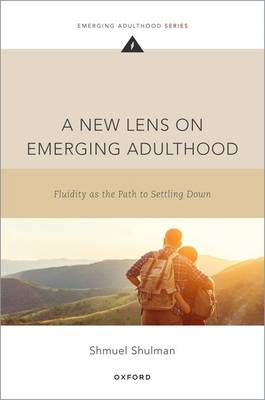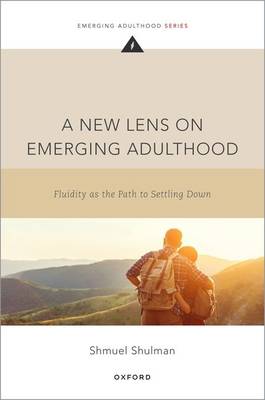
Onze Vivlio e-readers ondervinden momenteel synchronisatieproblemen. We doen er alles aan om dit zo snel mogelijk op te lossen. Onze excuses voor het ongemak!
- Afhalen na 1 uur in een winkel met voorraad
- Gratis thuislevering in België vanaf € 30
- Ruim aanbod met 7 miljoen producten
Onze Vivlio e-readers ondervinden momenteel synchronisatieproblemen. We doen er alles aan om dit zo snel mogelijk op te lossen. Onze excuses voor het ongemak!
- Afhalen na 1 uur in een winkel met voorraad
- Gratis thuislevering in België vanaf € 30
- Ruim aanbod met 7 miljoen producten
Zoeken
€ 104,95
+ 209 punten
Omschrijving
In recent years fewer young people make a smooth and linear transition to adulthood, and their lives seem to be characterized by instabilities and lack of commitment. However, when approaching the age of 30, the majority of people are likely to have settled down. The major aim of this book is to understand how young adults bridge this gap between the instabilities and fluctuations of the twenties and the stabilization when approaching the thirties. Based on a twelve-year longitudinal study that followed 185 emerging adults from age 23 to age 35, six assessments, and two in-depth interviews, A New Lens on Emerging Adulthood proposes a constructive understanding of the journey that young people take throughout their twenties and early thirties. Conceptualized within the Developmental Systems Theory, this book argues that emerging adulthood instabilities and missteps actually reflect progress toward developmental reorganization. Furthermore, fluidity and instabilities experienced by emerging adults during this period are evidence of the efforts to navigate toward a successful transition to adulthood.
Specificaties
Betrokkenen
- Auteur(s):
- Uitgeverij:
Inhoud
- Aantal bladzijden:
- 312
- Taal:
- Engels
- Reeks:
Eigenschappen
- Productcode (EAN):
- 9780190841836
- Verschijningsdatum:
- 3/11/2023
- Uitvoering:
- Paperback
- Formaat:
- Trade paperback (VS)
- Afmetingen:
- 158 mm x 235 mm
- Gewicht:
- 444 g

Alleen bij Standaard Boekhandel
+ 209 punten op je klantenkaart van Standaard Boekhandel
Beoordelingen
We publiceren alleen reviews die voldoen aan de voorwaarden voor reviews. Bekijk onze voorwaarden voor reviews.











